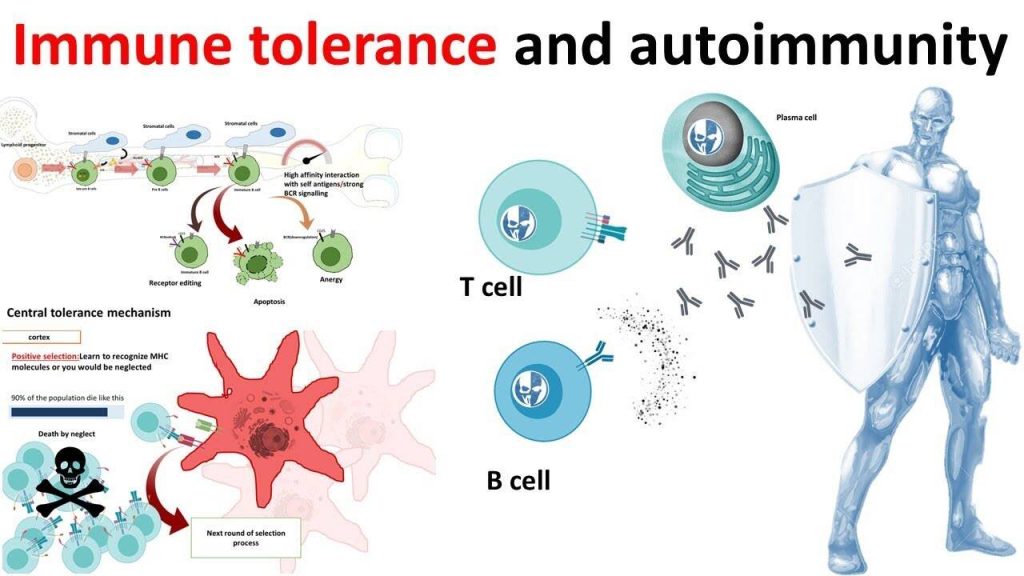Immune tolerance: A state of unresponsiveness to a specific antigen or group of antigens to which a person is normally responsive. Immune tolerance is achieved under conditions that suppress the immune reaction and is not just the absence of a immune response.
Immune tolerance can result from a number of causes including:
- Prior contact with the same antigen in fetal life or in the newborn period when the immune system is not yet mature;
- Prior contact with the antigen in extremely high or low doses;
- Exposure to radiation, chemotherapy drugs, or other agents that impair the immune system;
- Heritable diseases of the immune system;
- Acquired diseases of the immune system such as HIV/AIDS.
Immune tolerance can be defined as a state in which a T cell can no longer respond to antigen. The T cell “tolerates” the antigen.


